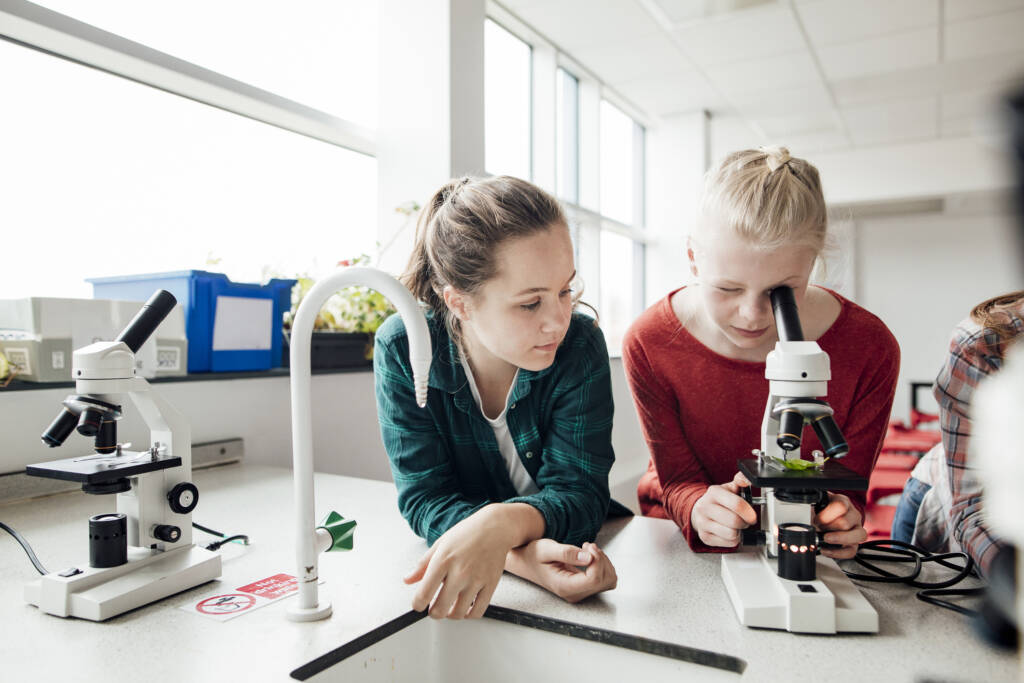
Middle School Comprehensive Science 3/Middle School Comprehensive Science 3 Advanced (Grade 8)

Middle School Comprehensive Science 3 is the third in a series of consecutive middle school science classes. It builds on concepts introduced in the first and second courses of the series, including the disciplines of life science, physical science, and earth-space science. In addition, technology, engineering, and mathematics (STEM) concepts are integrated throughout the course. Students learn about properties of matter, physical and chemical changes, atoms and the periodic table of elements, photosynthesis and cellular respiration, the universe, and the solar system. Hands-on and virtual laboratory investigations are included throughout the course to provide students with opportunities for exploration through scientific inquiry, research, measurement, problem-solving, and experimental procedures. By the end of the course, participants will be practicing, experimenting, thinking, and talking like student scientists who are ready for high school.
Major Topics and Concepts
Module 1: Matter
Scientific Knowledge
Measurements of Matter
Volume and Density
Physical Properties
Measuring Physical Properties
Module 2: Changes in Matter
States of Matter
Physical Versus Chemical Changes
Conservation of Mass
Thermal Energy and Chemical Change
Physical Models
Module 3: Elements and Compounds
Atomic Theory
The Periodic Table
Advanced Valence Electrons
Compounds
pH and Salts
Mixtures and Pure Substances
Module 4: Cycles and Conservation
Conservation
Photosynthesis
Cellular Respiration
Advanced Interrelated Nature
The Carbon Cycle
Conservation Models
Module 5: The Universe
Space and Beyond
Galaxies and Stars
Solar Properties
Advanced Space Weather
Electromagnetic Spectrum
Space Technology
Module 6: Our Solar System
Formation of the Solar System
Exploring the Solar System
Seasons and Tides
Eclipses and Moon Phases
Competencies
Matter
Students will demonstrate an understanding of matter by describing physical properties of matter, explaining measurements of physical properties, and describing scientific knowledge.
Changes in Matter
Students will demonstrate an understanding of changes in matter by describing physical changes, describing chemical changes, explaining the law of conservation of matter, and relating thermal energy to changes in matter.
Elements and Compounds
Students will demonstrate an understanding of elements and compounds by explaining the periodic table, and describing properties of elements, compounds and solutions.
Cycles in Nature
Students will demonstrate an understanding of the cycles in nature by describing matter and energy transfer in photosynthesis, describing matter and energy transfer in cellular respiration, and describing matter and energy transfer in the carbon cycle.
Observing the Universe
Students will demonstrate an understanding of observing the universe by describing space exploration technologies, explaining the impact of space exploration on everyday life, and summarizing the use of the electromagnetic spectrum to examine astronomical objects.
The Solar System
Students will demonstrate an understanding of the solar system by summarizing the formation of the solar system, describing moon phases, explaining eclipses, and explaining the seasons.
